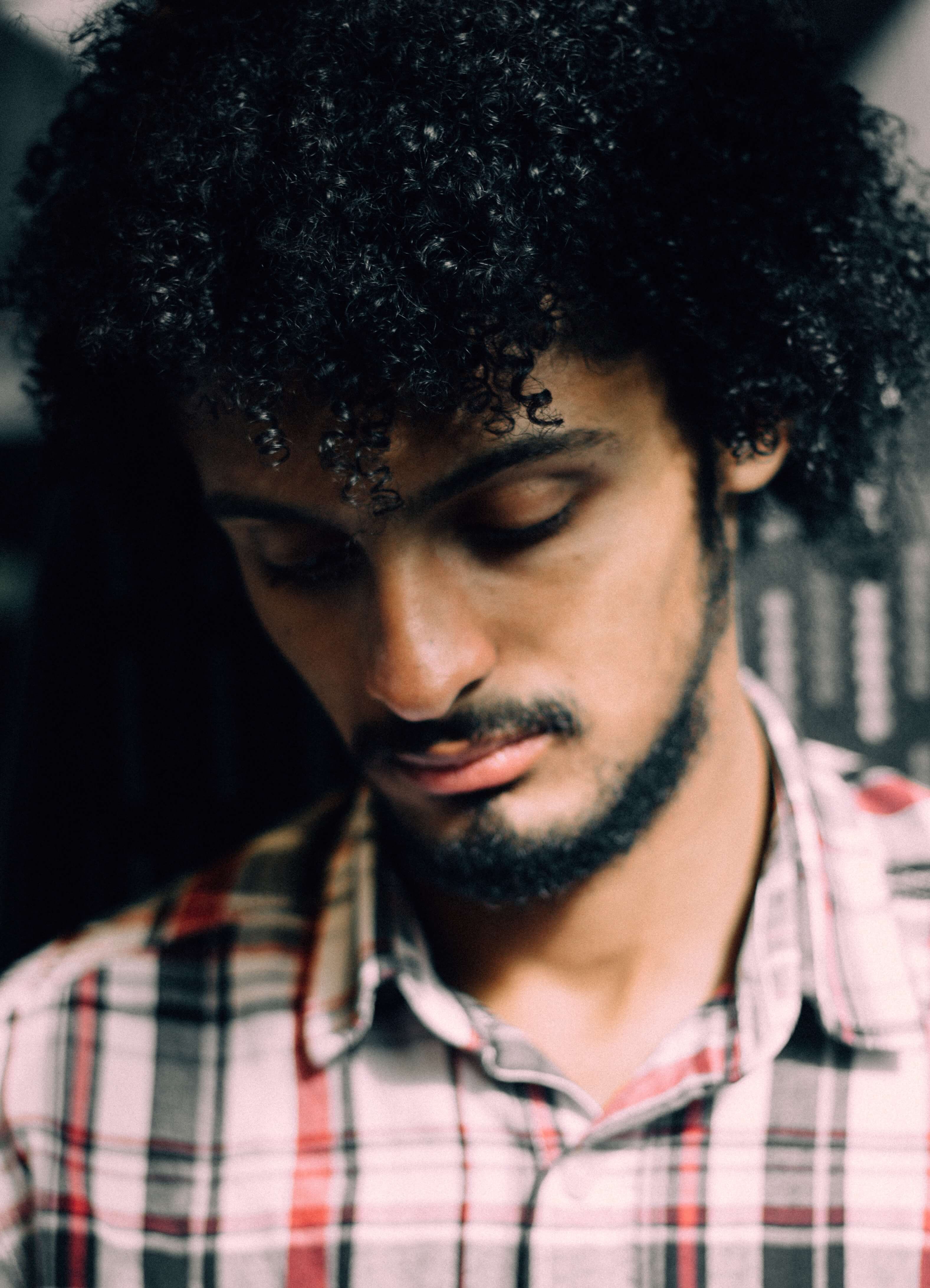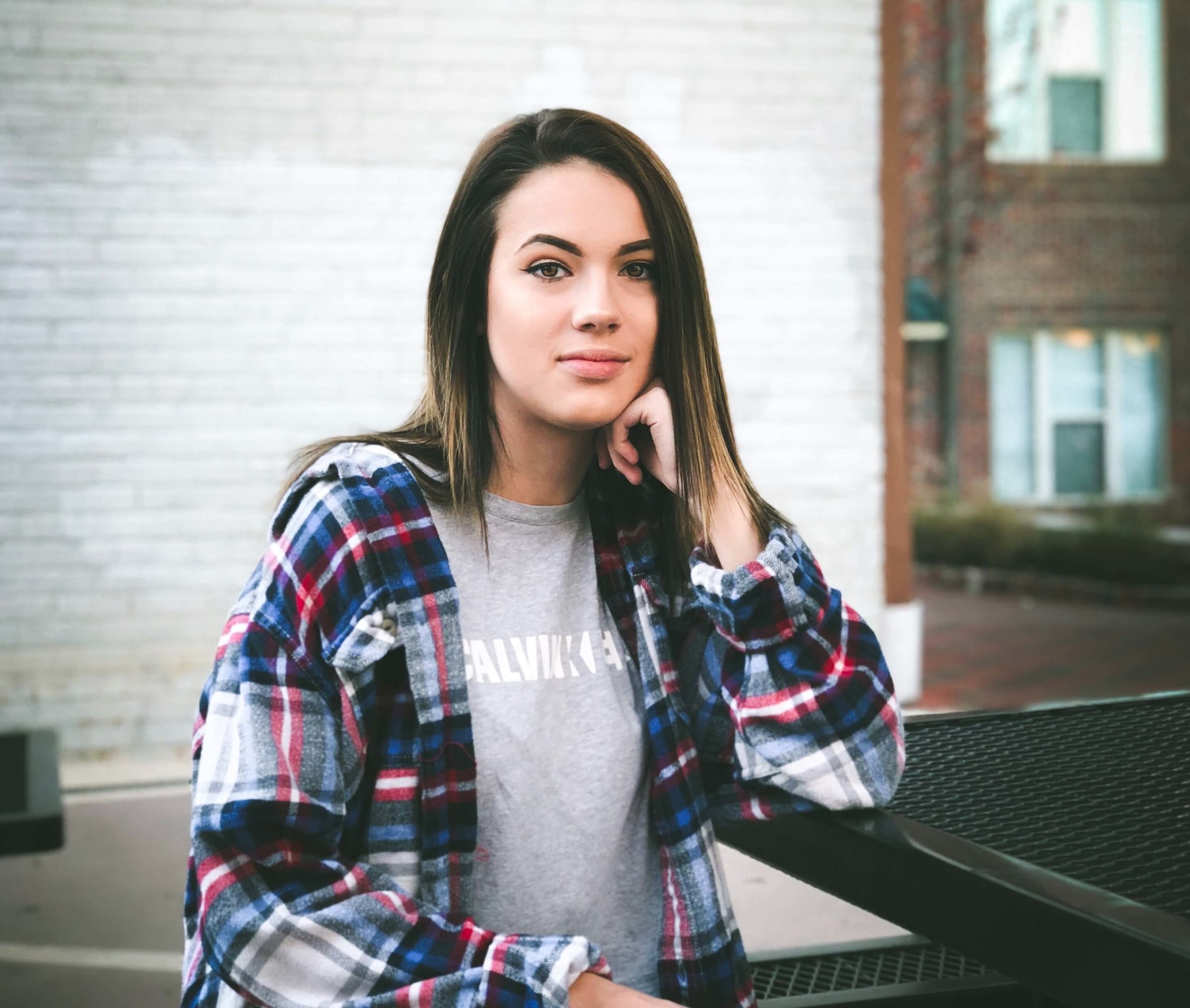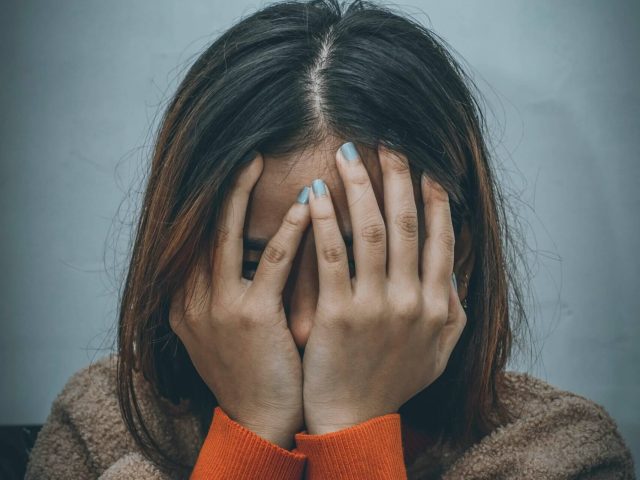When I finally admitted to myself that my ex was treating me badly and I needed to end things, one of the hardest parts was figuring out how to tell the truth to my friends and family about my unhealthy relationship. I had cultivated quite the elaborate lie – the people closest to me knew that things with my S.O. were abusive before I was able to see it, but no one knew the whole truth, and some people didn’t know anything was wrong at all. I got very good at making things look like they were perfect on social media and when I was with friends at brunch — but when my S.O. was around, it was clear that he didn’t treat me with respect, among other things.
As a result of this, my close friends wanted to spend less and less time around my partner and me, since he often belittled me in front of them, acted jealous around my guy friends and started telling me I couldn’t be around them. My ex could be quite volatile and get angry at the drop of a hat during nights out or at functions. Eventually, I spent less and less time out in public so it would be harder for people to catch on. My out-of-town family knew that something was up, due to my lack of communication and less frequent visits, but again, I hid most things because I was embarrassed at the idea that I should leave and wasn’t; I didn’t know how, so I worked very hard to hide any negativity, present the relationship as healthy, and act like I was happy.
RELATED: The 10 Signs of an Unhealthy Relationship
It wasn’t healthy, and I wasn’t happy, but it took me a long time to act on that. If you’re feeling a similar heaviness over wanting to tell your tribe the truth about your unhealthy relationship, here are some things that may help:
1. Remember That Your People Love You

They may have put some space between themselves and your relationship, but this doesn’t mean they don’t care about you, which was something I was tempted to believe. As one of my friends recently told me, “[The distance wasn’t] out of neglect, but more from being frustrated by the fact that you couldn’t listen to logic or take steps to help yourself – it was a self-preservation tactic, and that was hard, because I felt like a bad friend for pulling away.”
RELATED: 5 Signs You’re Experiencing Compassion Fatigue
If you’re not sure how to approach a friend who needed some space from you while you were in the relationship, start with writing out what you want to say to them. Think about if it would be better to talk to the friend face-to-face, or it may be better to leave them a voicemail, drop off a handwritten note, or send over a long text message giving them an update. Say everything you need to say, and then give them some time to process it.
RELATED: 5 Ways Your Words Can Empower Your Friend
2. Forgive Yourself First

Try not to get too hung up on the dishonesty factor – remember that the secret-keeping was another manipulation tool that your partner used to keep you dependent on them, and isolated from your friends and family. But the people in your life that care (i.e. your friends and family), even if they’re distant right now, have compassion for you, and want you to be free from an unhealthy relationship the exact second you are ready to get away from it. Work on forgiving yourself and letting yourself off the hook because you were just doing the best you could to exist in that unhealthy relationship.
There are lots of ways to move past your unhealthy relationship. It may be helpful to find a therapist you can talk to about the parts of your relationships that are hardest for you to come to terms with. My therapist helped me uncover the real reasons I probably stayed with my abusive partner — I was struggling with my self-esteem and was afraid that I would never find someone who treated me well. Once I figured that out, it was easier to explain things to my friends and family.
3. Write a Letter to Yourself
Another exercise that helped me was writing a letter to myself. And if you’re unhappy in your relationship, write a letter to the person you’d like to be outside of it. How do you feel without your unhealthy partner? Happy? Strong? Confident?
If you’re going through your breakup or healing process, write a letter to the person you were back in the unhealthy relationship. What are some things you’ve discovered about who you are without your ex? Once they’ve finished the letter they might commit to letting go of any guilt you may feel about presenting the relationship as a good thing when it actually wasn’t.
4. Take Your Time Telling Your Story

When I decided to tell my story I started with my therapist because I felt safe there. I moved next to my mother and drove up to Virginia to spend the day with her and talk face-to-face. I moved on to my friends next. It may be easiest to start with the people you know for sure will be supportive and kind. Your family may be the first place you start or the hardest thing to tackle. You may need to process with someone neutral, like a therapist, before you move onto more personal relationships. You get to decide — this is about you and your healing, and you have the right to space and time.
I did end up losing some friends because of how bad things got with my ex, even though I tried to go back and explain things to them. What I learned is that the friendships that I couldn’t recover probably didn’t have my best interests in mind, and that had more to do with them than with me. Telling the truth may not always be easy, but it will help reassure you who in your life is truly for you.
RELATED: 5 Signs My College Relationship Was Abusive That I Didn’t Recognize
5. Some People Will Understand Your Experience And Some Won’t – Yet

There are different ways that a relationship can be abusive – emotionally, physically, sexually, etc. Mine was all three, which was a lot for people to take in, but you may find that there are people who don’t “count” emotional abuse as true abuse, for example.
When one of my friends told me that, I was lucky to be able to have a good conversation with him to help him learn more about all the different ways a relationship can go from unhealthy to abusive — but if you feel invalidated by your friends who don’t get it and it starts to make it harder to heal, it’s okay to take some space from them.
This isn’t selfish — it’s self-care. Remember that you may not have understood until you experienced it for yourself. After you’ve had some time, you may want to reach back out with some things that will help them learn more without you having to explain it — like one of these TED talks, or this video.
You’re not responsible for their change of heart, but you can at least help connect them to resources as you are able. This is why it’s so important to forgive yourself and not judge yourself — even when people don’t understand or validate what you’ve gone through, you can rest in your own self-acceptance.
6. Other People Really, Really Will

On the other hand, you may be surprised to find that you have people in your corner who know what you’ve been experiencing all too well — because they’ve been through it, too. I learned that one of my best friends had been in an unhealthy relationship for four years, back in college. When she told me that, it explained why she had such a hard time watching me go through one: “I needed space from the two of you, but I think I had the most patience with you while you were with him because I knew that you were so blinded by him that you could not see the torment that was happening to you…either that, or you could, but were just too scared to leave. That’s how I felt when I was in your shoes,” she said.
You may also have people come forward about their own experiences with unhealthy relationships. If that’s too much for you to process, be ready to connect them with some real-time resources. While you are healing, it’ll be helpful for you to have good boundaries instead of trying to take on everyone else’s healing journey, too.
RELATED: How To Help A Friend Who May Be In An Abusive Relationship
7. People May Be Shocked, Or Unsure of How To React

Something I found was that there was extreme shock from people who didn’t observe any unhealthy behavior first-hand – they only saw what I was projecting about the relationship, and either felt Catfished, betrayed, or very sad that something so difficult happened to me. It took me a minute to realize that this was because the false reality I painted about my relationship was so intricate that the idea of anything negative was genuinely a lot for people to process, and they needed to grieve it.
To help them process, it may be helpful to come up with an elevator pitch. It could go something like this:
“I know my relationship looked good, but the truth is that it became increasingly unhealthy and I wasn’t sure how to tell anyone. It was really hard for me and may be hard for you to imagine me in a situation like that, but I’ve done some really good work to heal since the breakup and have learned x, y, and z about myself. I’m still healing, but I’m going to be okay.”
Decide how you want to explain what happened, and in how much detail. You don’t have to tell them absolutely everything — only what you think will help them understand where you’re coming from. That way, they can react to facts and your needs, rather than jumping to any conclusions.
RELATED: My Unhealthy Relationship Through My Mother’s Eyes [A Bystander’s Perspective]
8. Ask For What You Need

Your loved ones may have a lot of feelings about your unhealthy relationship, help them channel it in a way that is helpful to you. The best way to do this is to try to communicate your needs to your people while you are healing.
A friend who had a front row seat to my relationship and break up later told me, “When you were recovering, the most helpful thing for me in supporting you was when you let me know how you were feeling – if you needed check-ins, if you needed to get out of the house, or that you’re going off the grid just meant that you needed rest and it was okay for me to check in.”
Another thing to consider is planning for your safety. Unhealthy relationships can come in all shapes and sizes, and one of those shapes may have involved physical abuse. If that’s part of your story, or you have reason to believe it could be even post-breakup, check out the myPlan app or read more about how to protect yourself.
RELATED: 5 Easy Ways To Communicate Better in Your Relationship
9. Encourage Your People To Do The Same

The people who are the closest to you may need space and time to heal, too. Something I had to remember is that my S.O. didn’t just manipulate me – he manipulated my loved ones, too. When I became vocal on a broad platform, I had several friends admit to me that they, too, had experienced abuse. It may help you to be ready to point them to resources, like a helpful therapist to steward their healing process, too.
Healing is not Linear
Your healing timeline is up to you – but I think you will find love and support as you are able to ask for it and invite it in. There are a few friendships that may never recover as a result of my time with my ex, which is difficult — but overall, I have seen so much healing and growth with the people who knew me then. There is a lot of good work to be done here, and it is my hope that you find the hands you need to help guide you through it.
If you resonate with these steps but are still unsure where to start, check out One Love’s Real-Time Resources, or read more about what an unhealthy relationship can look like to find some more validation. Reaching out can be hard — no doubt — but it’s the first step to finding the kind of relationship you deserve — a healthy one!
Browse by Category

How to End a Summer Romance or Friendship
Summer flings and friendships can feel fleeting. So why is parting ways so damn hard? It’s because, even in a…
Celebrate Your Freedom: Independence in Relationships
As Independence Day rolls around, let’s chat about something just…
Practicing Equality in Your Relationships
Equality is one of One Love’s 10 Signs of a…
How to Practice Allyship Using the 10 Signs
During the month of June the United States observes both…
Ways We Self-Sabotage In A New Relationship After an Unhealthy One
You did it. You ended your unhealthy relationship. You grieved.…














